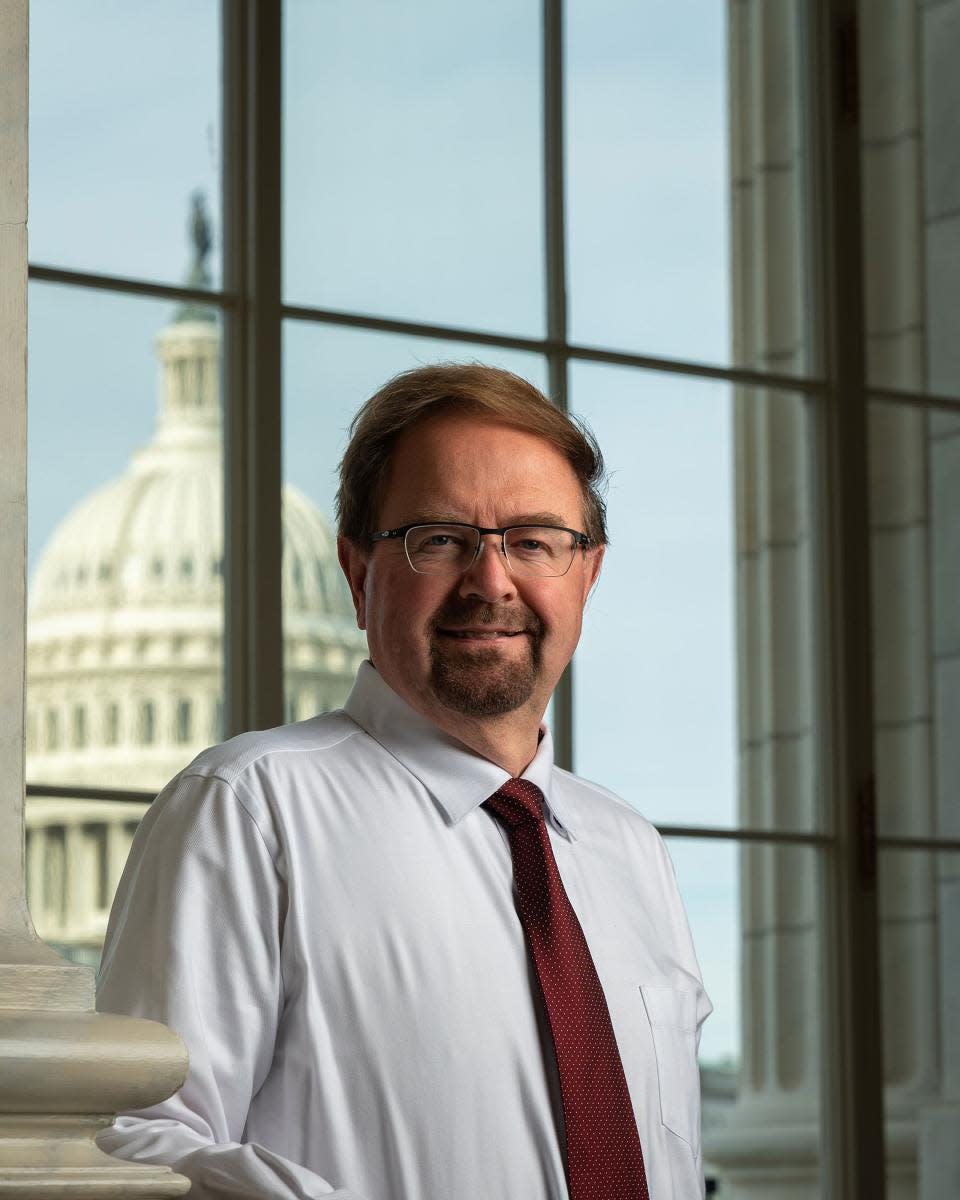Opinion: Asheville city government needs to concentrate on police officer morale
We all know the adage of Emperor Nero, who supposedly played his fiddle while Rome burned. It’s become shorthand for leaders focused on unimportant matters while dire issues go unaddressed.
There is another saying: Government budgets prove priorities.
The Asheville city government is a prime example of these maxims. As the city experiences a wave of violent and property crimes, residents fear for their safety, and the homeless population explodes. Yet a tone-deaf Asheville City Council is focused on reparations, a baseball field, and diversity, equity and inclusion initiatives.
Asheville’s priorities are starkly illustrated by the problem of a severely understaffed Asheville Police Department.
During the anti-crime summit I held in Asheville last spring, two themes were repeated by local leaders: To fix the crime problem, Asheville needs more officers on the streets, and to put more officers on the streets, Asheville should pay them more.
Yet those leaders are the very ones charged with prioritizing community needs and possess the ability to levy the taxes needed to achieve those priorities.
Rather than taking to heart what fed-up residents are saying, Asheville is instead spending taxpayer dollars on these and other projects:
$875,000 a year for the next 20 years for the renovation of McCormick Field.
$510,000 annual allocation for reparations.
$842,379 for a Sustainability Department that also deals with climate change.
$518,509 for the Equity & Inclusions Department.
$2,217,606 for administrative services (including City Council and the City Manager’s office), more than $300,000 above 2021 levels.
I appreciate that the budget includes a 6% raise for sworn positions in the Asheville Police Department and 5% for other staff.
But millions of dollars for unnecessary initiatives should have every resident of Asheville asking a fundamental question: Are our taxpayer dollars translating to a safer community?
Much attention has been paid to the fact that nearby law enforcement departments, including the Buncombe County Sheriff’s Office and the Greenville, South Carolina, Police Department, can offer more attractive compensation for officers.
For example, the Greenville Police Department advertises a $50,645 starting salary, while Asheville’s is $47,461. It’s no surprise that Greenville has dozens more officers on the beat than Asheville, despite 20,000 fewer residents.
However, many officers make the tradeoff of earning less to make a difference in their communities. That’s a core issue Asheville’s decision-makers have lost sight of: it’s not always about pay. People are often willing to make less money in a job where morale is high, and they feel valued.
That is not the case in Asheville.
This police morale crisis goes back to 2020, in the wake of the George Floyd murder protests. Jumping on the leftist bandwagon, the Asheville City Council entertained a cut to law enforcement funding by as much as 50%.
Some 80 officers left the force the following year, and the department was forced to suspend its responses to 10 different types of 911 calls. The APD is down 40% in staffing, and overtime pay to make up the shortfall has cost the city $2.5 million since 2020.
Meanwhile, the AVL Watchdog reported that, 20 years and 20,000 fewer residents ago, Asheville had 100 more officers on the beat than it does today.
If you ask former APD officers why they left, many won’t cite pay. Instead, they say that, after 2020, they felt like the city government did not have their backs, and that they were scapegoated by council members to appease their ever-more-left-wing, radical constituents.
The city owes former APD Chief David Zack a debt of gratitude for trying to make police compensation more competitive and for urging the city government to concentrate on officer morale. That damage must be repaired.
Despite city residents pleading for City Council to get a handle on crime and homelessness, the next Asheville police chief will face the same challenges.
I urge Mayor Esther Manheimer and the Asheville City Council to get serious about the very real threat a hollowed-out police force poses to the community.
I believe we can, but it will require Asheville’s government to reorder its priorities and make it clear to law enforcement that they are highly valued, appreciated and supported. The community can’t afford to wait any longer.
More: Asheville Interim Chief Lamb talks new APD focus, 'surprise' retirement, staffing issues
More: 'Challenging period' for Asheville police as chief Zack reveals plan to retire

Congressman Chuck Edwards serves as the U.S. representative for North Carolina’s 11th District, which covers 15 counties in the state’s western mountains.
This article originally appeared on Asheville Citizen Times: Opinion: Asheville police officers need to know they are supported

